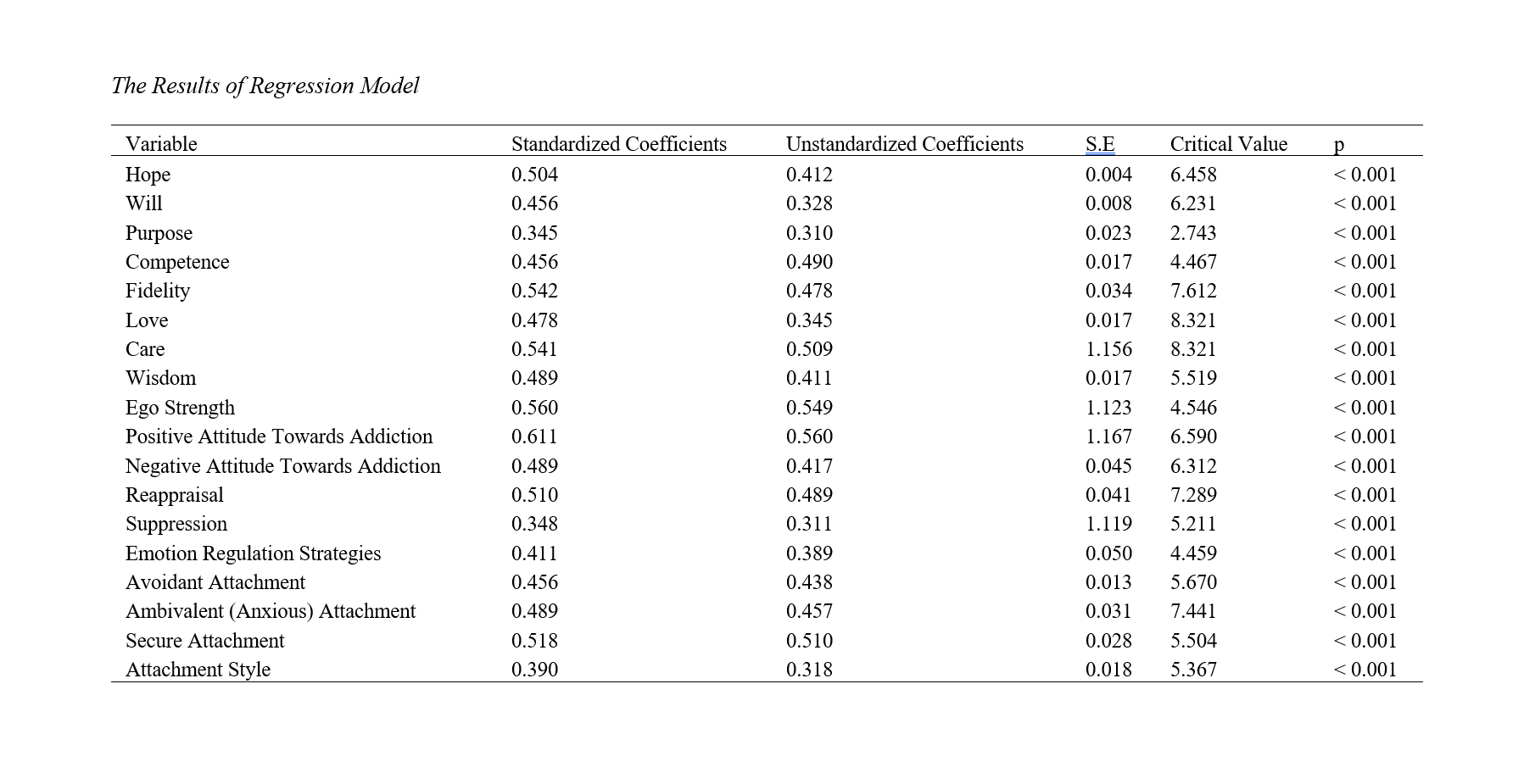The model for explaining the addiction attitude of clients who are quitting based on emotion regulation strategies and attachment styles with the mediating role of ego capacity
Keywords:
Ego capacity, emotion regulation strategies, attachment styles, attitude towards addictionAbstract
The present study was carried out with the aim of determining the model for explaining the attitude towards addiction of clients who are quitting based on emotion regulation strategies and attachment styles with the mediating role of ego capacity. The method of this study was descriptive-correlation based on the structural equation model. The statistical population of this research included all drug addicts in the process of withdrawal who referred to addiction treatment centers in the 1st district of Tehran, and a sample of 214 people was selected using random cluster sampling method (n = 214). The data collection tool was Markstrom et al.'s (1997) psycho-social ego strength inventory, theoretical addiction attitude questionnaire (1379), Gross and John's (2003) emotion regulation strategies questionnaire, and Hazan and Shaver's (1987) adult attachment questionnaire. Data analysis using structural equation modeling showed that due to the fact that the effect of the direct path is less than the indirect paths, the presence of the mediating variable of ego capacity increases the effect and the mediating role of ego capacity in the present hypothesis was confirmed. Therefore, there is a relationship between attachment styles and emotion regulation strategies with attitude towards addiction of clients who are quitting with the mediation of ego capacity. Knowing the effective factors in a positive attitude towards drug abuse and its consequences is one of the first and most important actions in drug abuse prevention programs. Practical suggestions were presented based on the interrelationships of research variables.
Downloads

Downloads
Additional Files
Published
Submitted
Revised
Accepted
Issue
Section
License

This work is licensed under a Creative Commons Attribution-NonCommercial 4.0 International License.








